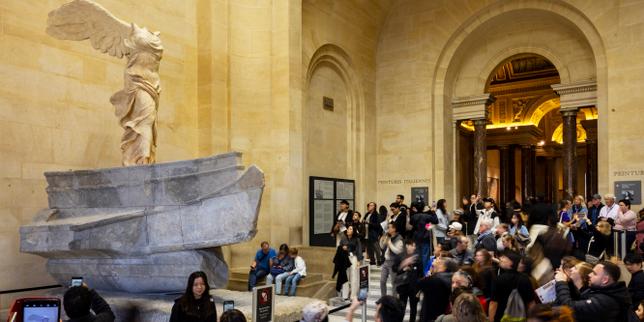Cour des comptes Criticizes Louvre for Prioritizing Acquisitions Over Security Amidst High-Profile Burglary
The Cour des comptes condemns the Louvre's focus on acquisitions over essential security upgrades, exposing weaknesses after a major burglary.
- • The Cour des comptes report reveals the Louvre neglected security investments from 2018 to 2024.
- • Successive Louvre presidents prioritized acquisitions and attractive projects over security.
- • The Louvre's fire safety plan remains incomplete after two decades.
- • Camera coverage is insufficient in key museum areas like the Denon wing, home to the Mona Lisa.
Key details
A recent report by the Cour des comptes harshly criticizes the Louvre Museum for neglecting security investments in favor of high-profile acquisitions and attracting public attention, following a major burglary on October 19, 2025. The audit, spanning from 2018 to 2024, reveals substantial security vulnerabilities even as the museum faces extensive financial demands, including the over 1 billion euros needed for the Louvre Nouvelle Renaissance project (132020, 132023).
The report, officially published on November 6, highlights that successive museum presidents Jean-Luc Martinez (2013-2021) and Laurence des Cars (since 2021) prioritized acquisitions and visible projects designed to bolster media appeal and sponsorship deals over critical security enhancements. Notably, the Louvre’s fire safety plan, initiated in 2004, remains unfinished two decades later, and camera coverage in key areas such as the Denon wing, which houses the Mona Lisa, reached only 64% by 2024, a modest increase from 51% five years prior (132020).
Trade unions like CFDT and SUD have long pointed out significant delays in maintenance and modernization investments. The Cour des comptes dedicates only a small portion of its extensive 153-page report to security, underscoring a troubling oversight given the museum's status as a world-renowned cultural institution (132020).
In response, the Louvre acknowledged most recommendations from the report but contested some findings, arguing the audit overlooks specific security measures the museum has implemented. The management also emphasized the importance of evaluating the museum’s complex operation through a long-term lens, particularly citing challenges around financial degradation, oversized acquisitions, underinvestment in maintenance, visitor management, and the ambitious Nouvelle Renaissance project revealed earlier in 2025 by President Emmanuel Macron (132010).
This critical report adds context to the high-profile theft, spotlighting how budgetary choices favoring acquisitions and museum visibility may have left security insufficiently funded and prioritized. It raises pressing questions about future governance and resource allocation needed to safeguard one of the world's most visited museums (132095).
This article was translated and synthesized from French sources, providing English-speaking readers with local perspectives.
Source articles (5)
Source comparison
Timing of report publication
Sources disagree on when the report was published in relation to the burglary incident.
france24.com
"This assessment comes nearly three weeks after a high-profile burglary at the renowned Paris museum."
lemonde.fr
"On November 6, a report by the Cour des comptes on the Louvre, published before the theft incident on October 19."
Why this matters: One source states the report was published nearly three weeks after the burglary on October 19, while another source claims it was published before the burglary. This affects the understanding of the report's context and urgency regarding security issues at the Louvre.
Latest news
France Returns the Djidji Ayôkwé Talking Drum to Côte d'Ivoire After Over a Century
Record 37 Days of Rain Triggers Ongoing Severe Flooding in Western France
Political Divisions and Social Tensions Intensify Following Quentin Deranque’s Death in Lyon
French Economy Minister Calls for Full Insurance Industry Mobilization Amid Devastating Storm Floods
France Boosts Social and Solidarity Economy with New Tools and Potential Tax Reforms in 2026
Saint-Nazaire Mayor Condemns Vandalism of Two Political Offices as Attack on Democracy
The top news stories in France
Delivered straight to your inbox each morning.




